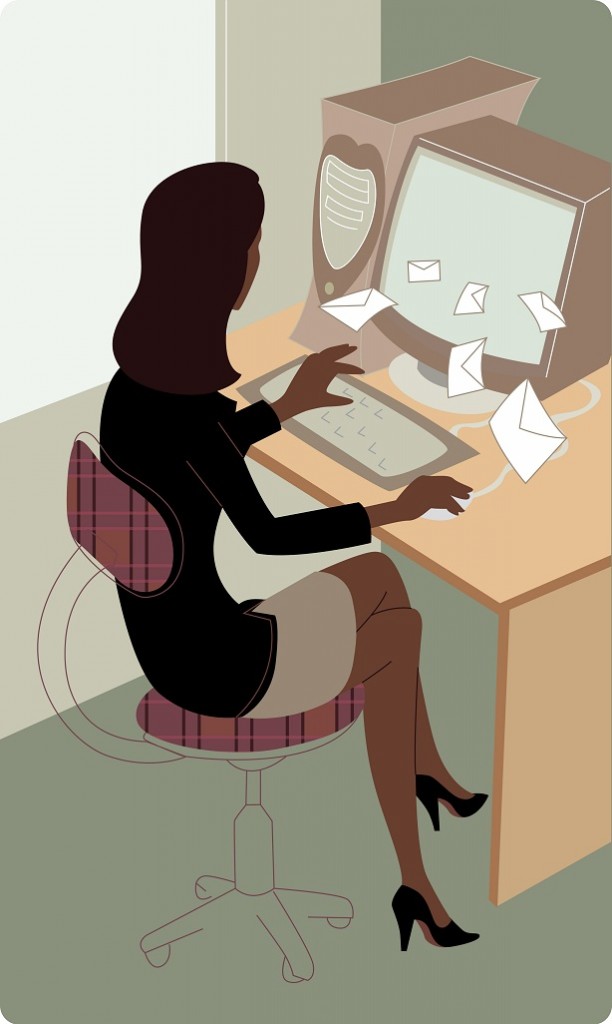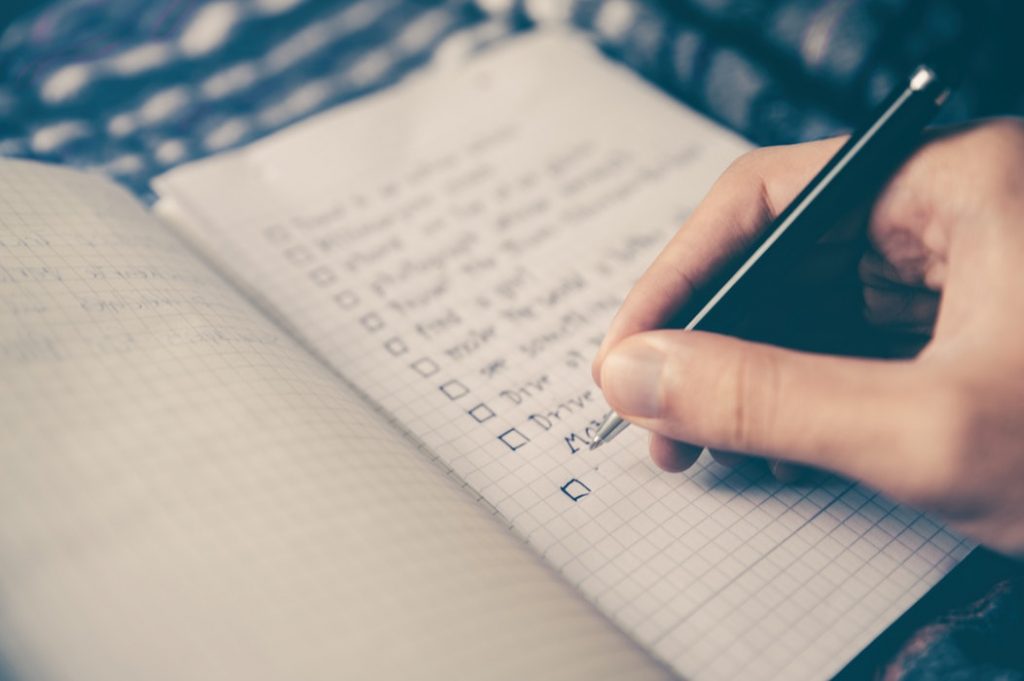Check your email effectively and regain control over your life

The habit that employees have of checking email in the mornings, evenings and weekends has not gone unnoticed by employers. Many of them are more lenient on lateness as a result. But the scales tip in favor of the employers since 80% of those managers interviewed feel they could call employees at home at night.
Mozy Inc., a U.S. – based company surveyed 500 employers and 500 employees in France, Germany, Ireland, UK and the USA. The bottom line is that along with the technology and the flexibility of the workday comes the expectation that employees are “open for business” during off hours.
For those employees who live by the “To Do” list, your life itself may become one as well – an endless one that expands your working day and shrink your personal life. You must take action to prevent this from happening. Start now by putting the following tips into action.
Time management through self-discipline
The first step in controlling our time and our lives is to accept responsibility for what is happening to us – and to decide to change it. Self-discipline or self-control is simply the power to do something when it is easier not to do it.
Self-discipline has a greater impact on how we manage our time than any other strategy. It is needed in order to form good habits, to defeat procrastination, stay organized, and to reap the benefits of delayed gratification.
We must make small changes first. Don’t make it difficult for yourself if you initially lack self-discipline. Build it gradually. For example, if you’re checking email consistently throughout the day, decide to check it four or five times a day, at specific times. Say, first thing in the morning, mid-morning, noon, mid-afternoon and evening. Once you have a routine, cut out the early morning, evening and Sunday sessions – and so on – until you have complete control. You will tend to cheat a little at first, and backslide, and that’s OK. You are building a habit, and if you persist, it will become easier to maintain self-discipline.
Schedule enough time, do not just quickly review your emails
Assume you check email ten times per day, spending ten minutes each time for a total of one hour, forty minutes. During this time let’s say you can handle 50 emails – either replying, deleting, forwarding etc. Instead, if you check your email four times a day, and spend 20 minutes each time, for a total of 1 hour, 20 minutes, during this total time you would probably be able to handle the same 50 emails. But you have done it in 20 minutes less time.
No matter how small the task, there is a setup time. You have a setup time for both the email (opening the program, clicking in the inbox etc.) and for resuming the task that you interrupted in order to check email. The fewer times you check email, the more time you save. An added benefit is that you won’t be telling people by your actions that you respond instantly to every email you get. If you do, they will expect it. We train people how to treat us by our actions and habits. Control your email and you will go a long way to controlling your time. You will be eliminating a large source of stress and getting out of a reactive mode.
Always get your top priority first
It’s not generally a good idea to check email first thing in the morning. You could easily get distracted from your plan. Make sure you get your top priority done first. I recommend that you schedule one or more priority tasks each morning and not check your email until about 11:30. You could check it again about 3:30 in the afternoon. You might want to turn off the automatic send/receive option so that email doesn’t pop up in your inbox the moment you sign on. Email programs seem to be designed to control us rather than the other way around.
I encourage everyone to at least give it a try. Check your email twice per day for at least a couple of days and then assess the impact on your business.
When you do check your email, make sure that you have enough time to dispense with all the email messages in your inbox. You might want to allow a half hour for instance every time you check your email. Either delete it, forward it to someone else for reply, file it, answer it, move it to an action file or To Do list, or (if it warrants it) schedule time in your planner to take the necessary action before replying. It’s a similar process you would use with paper. Handle it only once where possible and never leave it in the inbox.
Write email messages with your purpose in mind
Many managers receive over 100 email messages per day, and spend only a second or two deciding whether to open them. Most such decisions are based on the subject line. Even when they open the message, they may only read a line or two before deleting it and going on to the next one.
If you take the time to send an email message, take the time necessary to insure it fulfills its purpose. For instance, craft the subject line so it grabs their attention while telling them what the email message is about. Put the vital information in the first few lines and be clear and direct about what you want them to do after reading the message.
Proof the message before sending it, correcting any typos and bad grammar, and tightening up the sentences. It may take longer to write shorter messages but they will get better results. Avoid attachments if possible. Instead, cut and paste the additional information at the end of the message. Make it is easy for the reader. Their time is just as valuable as your time, and you are the one who is initiating the interruption.
If you would like to see further time management tips, then “Time to be productive – Develop your time management skills” written by Harold Taylor is the right book for you.
Download the free eBook “Time to be productive”



